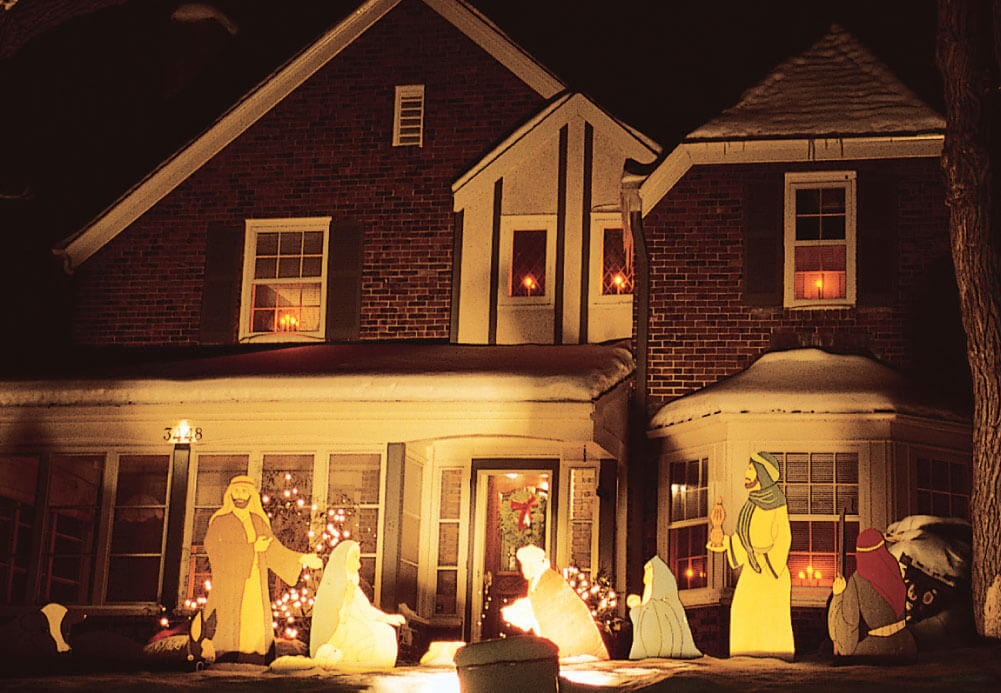
Luke carefully fixes the beginning of John the Baptist’s preaching and Jesus’ ministry in world time — the 15th year of Tiberius. Earlier in his gospel, Luke dates John’s birth in the days of King Herod of Judea and Jesus’ birth “in the days when Caesar Augustus published a census and Quirinius was governor of Syria.” Luke places gospel events in Roman history for an audience that we can infer must include Gentiles.
However, Luke places John the Baptist not only in Roman, Gentile history. For Jewish ears he identifies an echo of Second Isaiah in the preaching of John. Second Isaiah is the prophet who promises God will lead the exiled people home on a straight road through the wilderness, just as once God led their ancestors to freedom on a dry path through the sea.
In giving John the Baptist voice in the Advent gospels, the Church’s lectionary takes liberty with historical time. John and Jesus are close in age; their mothers pregnant at the same time. But in Sunday’s gospel the Baptist is already an adult whose prophetic preaching helps us prepare to celebrate the birth of Jesus and the mystery of his continuing presence with us. John’s first-century call to repentance calls to us to change our hearts and make a home for Jesus among us in our lives.
For Christians who hear the Advent readings today, the voices of Second Isaiah and John the Baptist join in a single call to recognize ourselves and our communities as home to God. The God awake and afoot in Sunday’s scripture readings is the One who makes a home among us in becoming flesh.
- In the ninth year of Francis I, the 266th pope of the Roman Catholic Church; in the fifth year of Antonio Guterres, the 9th Secretary General of the United Nations; in the first year of Joseph R. Biden, the 46th president of the United States, what word of God comes to you?
- In what special ways do you spend time together as a family in Advent?
The preaching of John the Baptist echoes Second Isaiah’s call to exiled Israelites to come home and become a people again. God calls Second Isaiah to comfort and forgive the people in exile. “Comfort my people,” God directs. “Speak tenderly to Israel and proclaim her guilt is expiated; she has received double for all her sins” (Isaiah 40.1-2).
Second Isaiah becomes a herald who announces God will lead the people home from exile. His prophetic poetry imagines God powerfully straightening hairpin turns, filling impassable crevasses, and smoothing exhausting terrain. Luke quotes this vision from Second Isaiah to explain John the Baptist’s call to get a God-attentive attitude and prepare a road for God to come among us.
John the Baptist heralds the turning point in history by which much of our world marks its calender. The God who dwelt in Israel’s tent and temple and whom Second Isaiah discovered at work in Babylon finds a new dwelling place.
A woman makes home in her womb for God to become human. A human family makes a home in which her son, the Son of God, can grow up. God is at home in us and with us. The bishops of the Second Vatican Council beautifully describe the dignity of the human person in the light of God’s becoming human in Jesus.
“For by his incarnation the Son of God has united himself in some fashion with every human. He worked with human hands, he thought with a human mind, acted by human choice, and loved with a human heart. Born of the Virgin Mary, he has truly been made one of us, like us in all things except sin” (Pastoral Constitution on the Church in the Modern World, #22).
- What does God becoming human mean to you?
- How does the fact that Jesus worked, thought, acted, and loved as you do affect the worth you see in your actions?
Ancient Israelites imagine God as a divine warrior with a heavenly army who helps the people triumph in battle and then marches before them, leading them to a place where they build a temple to worship their God and where they settle. This ancient imagery inspires Second Isaiah’s vision of God leading the captives home to Jerusalem on a road smooth and straight through the wilderness.
A road is also a metaphor for the journey each of us makes in life. On our journeys we climb hills and walk shadowed valleys. We speed along straightaways but slow for curves where we can’t see what is coming. Crossroads force us to decide which way we will go. On the road we meet fellow travelers, coming from nearby or from places we have never been.
- What roads do you see in your mind when you remember the way home?
- How does the road you are currently traveling affect Earth?
